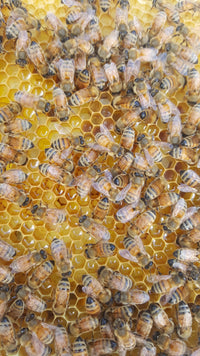Manuka honey has long been marketed as the gold standard for natural healing, known for its powerful antibacterial and anti-inflammatory properties. But behind the glossy packaging and celebrity endorsements lies a troubling truth: the manuka honey industry is rife with overexploitation, counterfeits, and unsustainable practices. For those seeking natural remedies, there are plenty of local and equally potent alternatives available right here in the U.S.
The Problem with Manuka Honey Manuka honey is derived from the nectar of the Leptospermum scoparium plant, native to New Zealand. While it does offer notable medicinal benefits, including high levels of methylglyoxal (MGO), the growing global demand has created an industry vulnerable to exploitation:
-
Counterfeits: A 2018 report by the UK Food Standards Agency found that up to 80% of manuka honey on the global market was either adulterated or mislabeled.
-
Overexploitation: The high value of manuka honey has led to overharvesting and environmental strain in New Zealand.
-
Cost vs. Access: Genuine manuka honey can cost upwards of $100 per jar, making it inaccessible for many people seeking affordable, natural remedies.

The Case for Local, Dark Honeys While manuka honey has earned its reputation, it's not the only honey with health-promoting properties. Many dark-colored honey varieties produced in the U.S. are rich in antioxidants, antibacterial agents, and enzymes that support immune function. In fact, research shows that the darker the honey, the higher its antioxidant content (Spandidos Publications).
Top U.S. Honey Varieties That Rival Manuka
-
Buckwheat Honey
Buckwheat honey is one of the darkest and most antioxidant-rich honeys available in the U.S. A study published in Food Chemistry (2018) found that buckwheat honey had higher sugar, protein, and total phenolic content than manuka honey, along with comparable antibacterial effects against Staphylococcus aureus and Pseudomonas aeruginosa (PubMed). -
Eucalyptus Honey
Derived from the nectar of eucalyptus trees, this honey is not only aromatic but also medicinal. A study in Heliyon found that eucalyptus honey decreased inflammation in immune cells and exhibited antibacterial and antifungal properties (ScienceDirect). It's often used to ease sore throats and respiratory issues. -
Avocado Honey
Though lesser-known, avocado honey is rich in minerals and has a smooth, buttery taste. While academic studies are limited, its dark color and unique flavor profile suggest high levels of phenolic compounds and antioxidant activity, much like other dark honeys. -
Pomegranate Honey
Rare and highly sought after, pomegranate honey is believed to have antimicrobial and antioxidant properties due to the high polyphenol content in pomegranate nectar. Though specific studies are scarce, it's a promising addition to the world of therapeutic honeys.
Why Choose Local and Seasonal Honeys? Choosing locally-sourced honey supports small-scale beekeepers and reduces your carbon footprint. It also ensures you're getting unadulterated, raw honey that hasn’t been filtered, pasteurized, or diluted. Plus, many people find that consuming local honey can help with seasonal allergies by providing low-level exposure to local pollen.
Manuka honey may be a household name, but it’s not the only honey with healing power. Dark, local honey varieties like buckwheat, eucalyptus, avocado, and pomegranate offer many of the same benefits—without the environmental toll or inflated price tag. So the next time you’re looking for a natural remedy, consider supporting a local beekeeper and reaching for a jar of nutrient-rich, American-grown honey.
Sources for Further Reading:



Leave a comment